SUMMARY
This is AI generated summarization, which may have errors. For context, always refer to the full article.
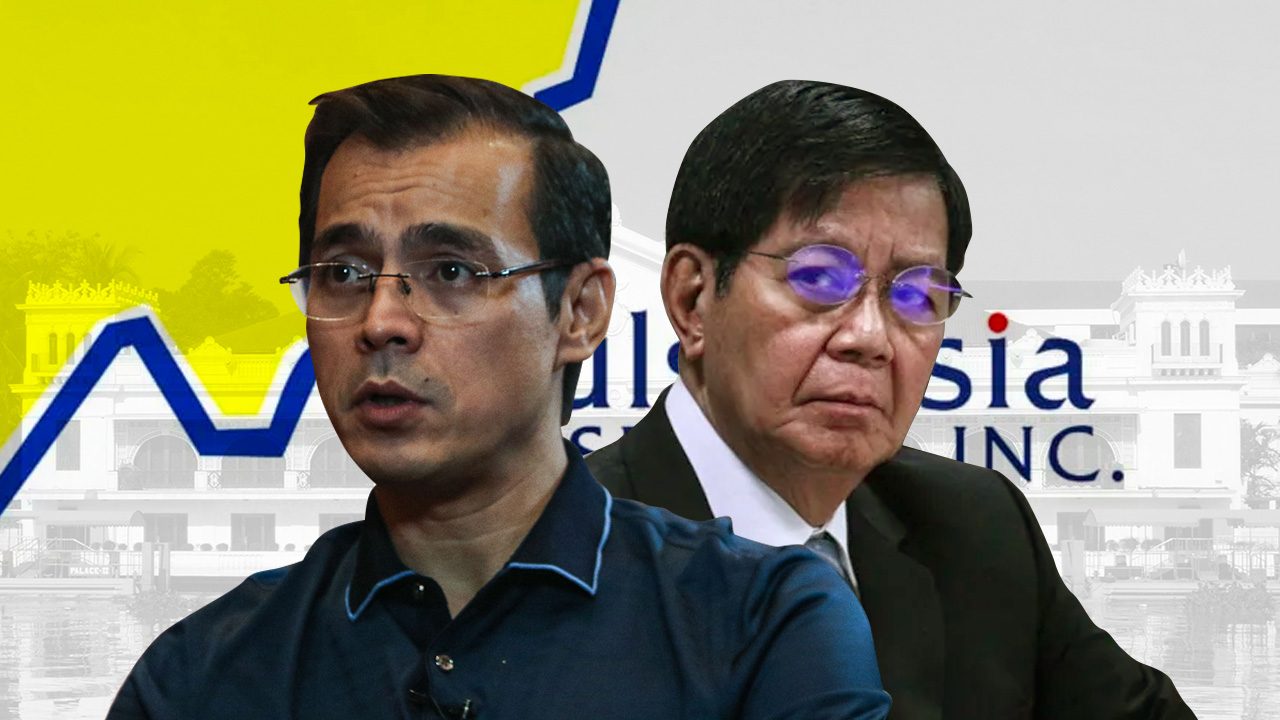
MANILA, Philippines – Unlike in previous elections in recent history, the 2022 races were not finalized on the last day of filing of certificates of candidacy on October 8, 2021. But like in the past presidential race, a disqualification case looms over an aspirant for the top post.
As more candidates – particularly those with links to President Rodrigo Duterte – used the tactic of filing candidacies late through substitution via withdrawal, it was only after November 15, the deadline for that move, that voters’ options became clear. Or, at least, as clear as they could be.
The latest Pulse Asia 2022 preference survey reflects the shifting sands in campaigns. For instance, it showed that Manila Mayor Isko Moreno appears to have lost the most in the melee – a far cry from where he was when he launched his presidential bid in September.
Moreno, the former movie star who’s since carved out a decades-old career in politics, lost five percentage points between the September 2021 and December 2021 Pulse Asia surveys. With a margin of error of +/- 2 points in the survey, the 5-point drop – which put Moreno’s preference numbers in single digits – is distressing for his camp.
The numbers of another presidential hopeful, Senator Panfilo Lacson, remained stuck at 6% while Senator Manny Pacquiao, the champion boxer, saw his numbers also drop four percentage points – from 12% to 8%.
Ronald Holmes, Pulse Asia Research President, however, told Rappler that it’s “hard to compare with the September survey as we have a different set of names.”
The September 2021 survey, after all, included erstwhile survey leader Davao City Mayor Sara Duterte, who has since filed her candidacy for vice president of Ferdinand “Bongbong” Marcos Jr, the frontrunner in the December 2021 Pulse Asia survey.
Second choices
While the drop is a letdown for Moreno, there’s a silver lining for his camp: 23% of those surveyed said they’d pick him should their first choice for president “end up not pursuing his/her candidacy.” Trailing Moreno as a “second choice” were Lacson (17%), Robredo (14%), Pacquiao (11%), and Marcos (11%).
In terms of second-choice preferences – the presidential candidate that respondents would pick if their original choice were no longer in the race – most of Metro Manila and Luzon chose either Moreno (19% to 26%), Lacson (19% to 20%), or none at all (24% to 26%). Moreno also led in the Visayas (a plurality of 30% said he was their second choice) and Mindanao (at 21%, trailed by Mindanaoan Pacquiao at 20%).
Lacson, meanwhile, was the top 2nd choice for Class ABC (24%), trailed by Moreno (20%) and Robredo (15%). A chunk of Class ABC, however, or 28%, said they did not have a second-choice for president.
Moreno, who grew up in Tondo, Manila, was the top second choice for Class D (24%). Class D respondents said they were not voting for any other candidate should their choice leave the race (20%). It was Robredo who was the top second choice for Class E at 21%, followed by Moreno (20%), Pacquiao (18%), Marcos (17%), and Lacson (14%).
Holmes said a “plurality of voters for Marcos will go to [Moreno].”
That Moreno is top second choice in the Pulse survey is not a surprise to his team, whose internal data shows that only 6% of voters have strong feelings against the Manila mayor.
But why does the second choice matter all of a sudden? For the obvious reason that the frontrunner is facing six petitions that seek to remove him from the race. Two of the petitions against Marcos’ candidacy are asking the Commission on Elections to cancel his certificate of candidacy; four are calling for his disqualification. (Read this article for a breakdown of the challenges against Marcos’ candidacy)
The cases are expected to reach the Supreme Court.
An insider from the Moreno camp said they believe it’s the Manila mayor who would “benefit from a Marcos disqualification.” And it won’t harm him if he had the backing of the administration as well. Moreno himself has been playing around with his Duterte association. Even as he’s proudly declared that he’s no Duterte candidate, Moreno praised him, saying he would adopt the incumbent president as a senatorial candidate (Duterte has since withdrawn his senatorial bid).
Months after the Manila mayor blasted Duterte, his mouthpiece Harry Roque, and the government’s pandemic response, Moreno changed tune as he criticized instead the 2022 aspirants who were “nowhere to be found” prior to filing their candidacies. He’s even made amends with Roque, who is seeking a Senate post.
Would Duterte endorse Moreno eventually? The President’s choice for 2022, longtime aide Senator Bong Go, has already backed out of the presidential race. Observers said he’s unlikely to endorse Marcos, given his public criticism of the dictator’s son as a “weak leader.” So to a certain extent, it would not be wishful thinking for Moreno to aspire for Duterte’s support.
But insiders in the Lacson camp would beg to differ. Based on their own analysis of the numbers and the senator’s network, they said it’s the former police general who’d benefit from a Marcos disqualification.
Lacson, once tagged as a Duterte “enabler” in the upper chamber of Congress, has said the country has had enough of Duterte. The 2022 presidential race is Lacson’s second bid for the top post. In 2004, he ran for president but lost to Gloria Macapagal Arroyo, landing in third place with over 3.5 million votes.
Open game?
Despite Marcos’ large lead and other candidates’ single-digit showing in the December 2021 Pulse Asia survey, observers and political operators said the race is still wide open.
Is this a display of blind optimism or political know-how?
They cited the following factors: the official campaign is yet to start in February 2022 and even then, candidates have until May to secure their command votes (their bailiwicks, through political ties and mobilization in the grassroots) and expand their market votes (the popular vote, if you will). Early preference survey leaders in the most recent presidential elections ended up losing – think Manny Villar in 2010 and Jejomar Binay in 2016.
That the President – whose popularity, although waning, remains high – has yet to endorse a candidate after Go’s withdrawal could also be a factor. While the supposed ruling PDP-Laban’s machinery crumbled after the party had no standard-bearer to show, it also means their members and allies in the local level now have the option to choose any presidential candidate they want. – Rappler.com
Add a comment
How does this make you feel?
![[Newspoint] Improbable vote](https://www.rappler.com/tachyon/2023/03/Newspoint-improbable-vote-March-24-2023.jpg?resize=257%2C257&crop=339px%2C0px%2C720px%2C720px)
![[Newspoint] 19 million reasons](https://www.rappler.com/tachyon/2022/12/Newspoint-19-million-reasons-December-31-2022.jpg?resize=257%2C257&crop=181px%2C0px%2C900px%2C900px)
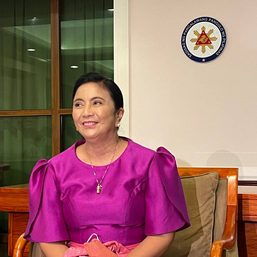




![[New School] Tama na kayo](https://www.rappler.com/tachyon/2024/02/new-school-tama-na-kayo-feb-6-2024.jpg?resize=257%2C257&crop=290px%2C0px%2C720px%2C720px)
![[Only IN Hollywood] After a thousand cuts, and so it begins for Ramona Diaz and Maria Ressa](https://www.rappler.com/tachyon/2024/02/Leni-18.jpg?resize=257%2C257&crop=262px%2C0px%2C720px%2C720px)
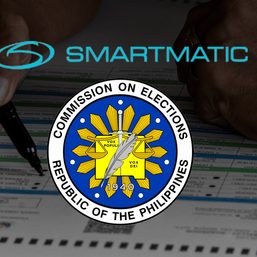

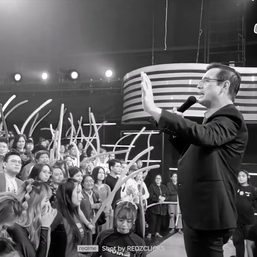
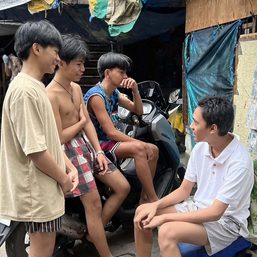
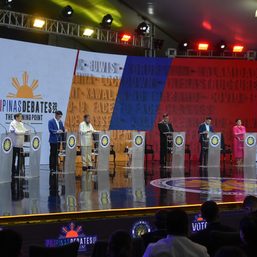
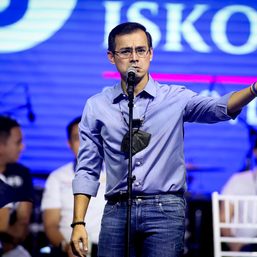
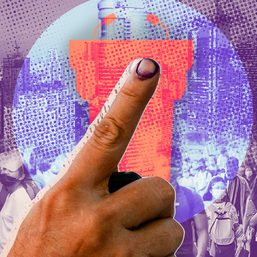
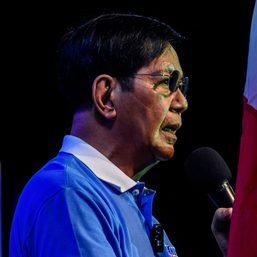
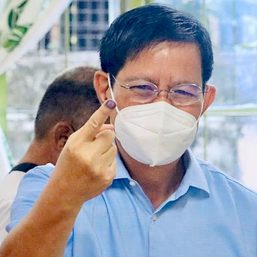
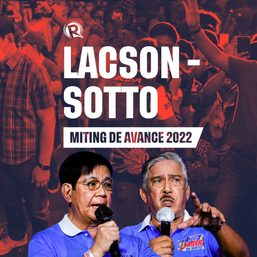
There are no comments yet. Add your comment to start the conversation.